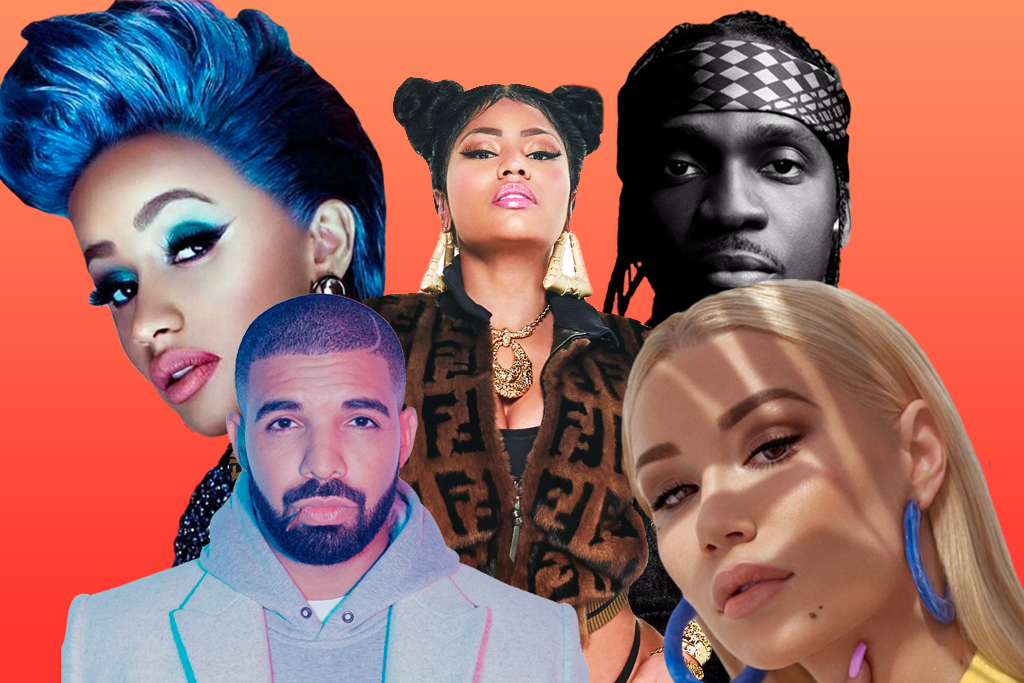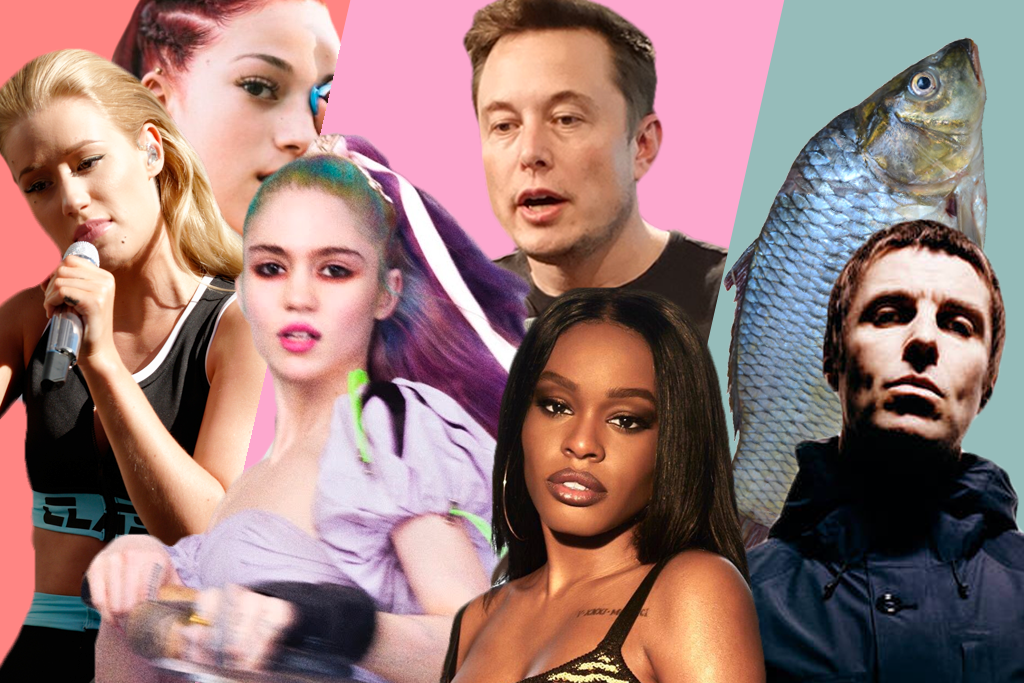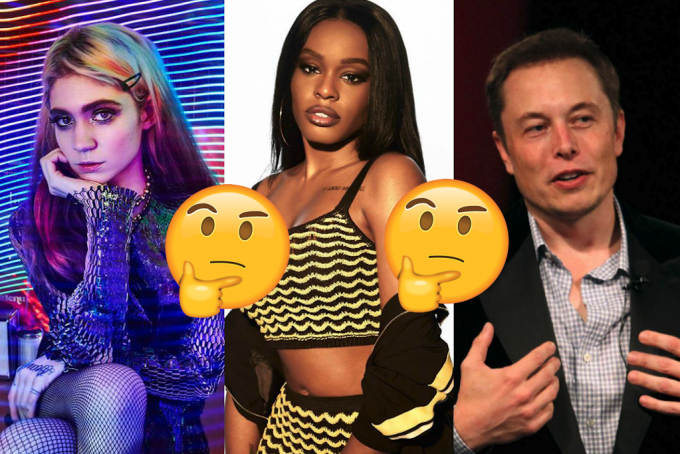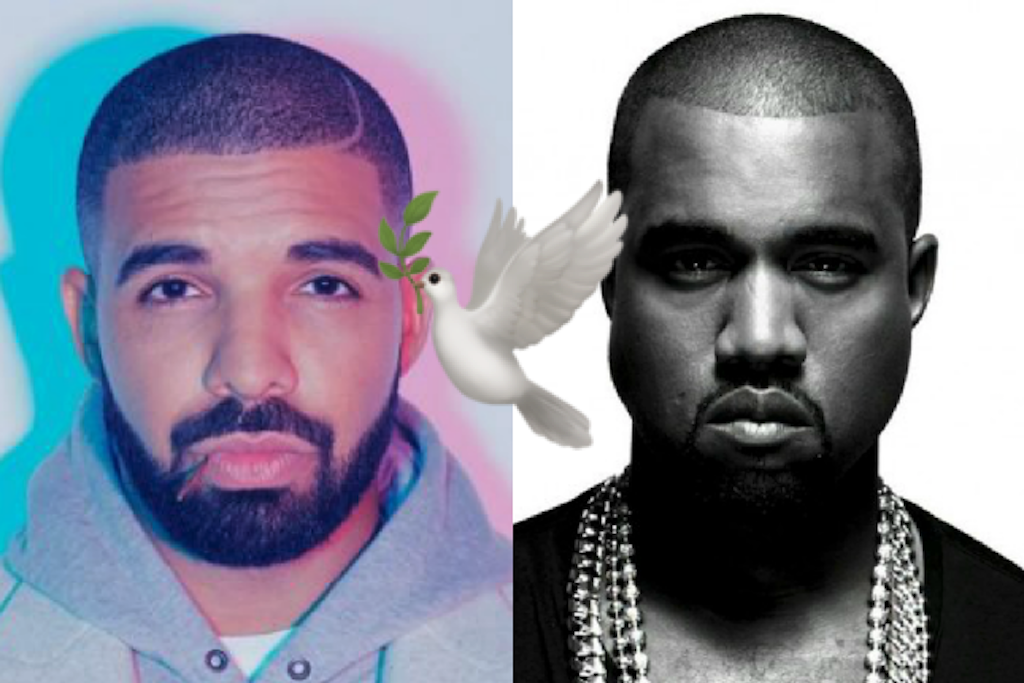Are Music Beefs Actually Bad For Business?
In the past, a good beef could sell music. But not anymore.

The telenovela that is the music industry has many recurring tropes: triumphant rags to riches tales, suspicious industry plants, and loveable one-hit wonders — but nothing creates drama quite like a juicy beef.
Today, the music industry’s point of entry is wider than ever, and with the market oversaturated with the likes of reality TV stars, influencers and viral personalities, it’s becoming harder to stand out. Feuds have become a ritual combat for artists at the top — mostly relating to perceived threats to their “territory” — and a common tactic to constantly dominate the 24-hour news cycle.
Territorial feuders are usually repeating offenders; Madonna, Lil’ Kim, Taylor Swift, Kanye West, Katy Perry, and Sun Kil Moon (yes, really) to name but a few.
Lil’ Kim, who was at the top of her game in 1997 alongside powerhouse, Foxy Brown, turned what started out as a friendly mutual hip-hop takeover into an all-out war. A battle for an arbitrary spot at the top resulted in leaked songs, accusations of using ghostwriters and not so subliminal disses.
Despite efforts from Jay Z, Def Jam’s CEO at the time, Lyor Cohen, and New York rapper Fabolous to bring the two together for collaborative albums and performances, to this day the feud remains unresolved.
Over the years, in what seems to be an effort to protect her spot in the rap game, Lil’ Kim has taken on Faith Evans, Eve, 50 Cent as well as a young and up-and-coming, Nicki Minaj. That particular feud began when Minaj released images for her 2007 Playtime Is Over mixtape, which bore a resemblance to Kim’s 1996 album cover for Hard Core.
Feuds have become a ritual combat for artists at the top — mostly relating to perceived threats to their “territory”.
They traded shots over three years and finally addressed the brewing animosity directly in 2010. During a Hot 96 interview, Minaj directly addressed Kim, saying: “You’re going to go down in history now as a sore loser, as opposed to going down in history as the Queen.”
Kim continued to call Minaj a “clone” for biting her style, photo shoots, and album covers, but it was Minaj who came out on top. Scrambling to shoot down a new talent rather than cosigning her not only made Kim look bitter but squandered an opportunity to foster a landscape in rap that made room for many more females MCs.
What Comes Around Goes Around
The irony of Minaj’s 2010 Hot 96 interview isn’t lost on anyone. As far as sore losers go, the unfolding events of 2018, which saw Cardi B’s rise to fame and Minaj erratically pine for the spotlight despite having it all along, unveiled a familiar scene, but with a few key differences.
In a profile with Elle, Minaj shared harmful views on sex workers, a stance at odds with her music (‘Rich Sex‘), to seemingly diss Cardi’s past as a stripper. When she was criticised on Twitter, Minaj doubled-down on her views and encouraged her allegiance of stans, to dox, harass and even physically harm her critics.
When Cardi B called herself the “King of New York”, on Lil Yachty’s Who Want The Smoke in response to a contentious Tekashi 6ix9ine Instagram post, it all seemed to be lighthearted hip-hop banter. Minaj’s ensuing controversial collaboration, ‘FEFE’ with the controversial Brooklyn rapper 6ix9ine (who’s currently on trial for a slew of charges that include armed robbery and attempted murder) was surprisingly petty, even by her standards.
Minaj’s antics were labelled desperate and hypocritical. The backlash surrounding her decision to collaborate with 6ix9ine outshone all of the positive press surrounding her album, Queen. Once again, choosing to double-down and publicly defend him, infuriated critics and fans alike when she announced he’d be joining her 2019 world tour — which was subsequently cancelled due to poor ticket sales.
Her bad choices accumulating, Nicki Minaj’s integrity, commercial viability, and hypocritical feminism were called into question.
In December of 2018, Cardi opened up about her beef with Minaj. “I think it’s bad for business,” Cardi told CBS. “You know a lot of people like to say all publicity is good publicity but to me, it’s not, because that takes away people paying attention to your craft. It makes people not even care about your craft. They just want to see drama.”
Is The Beef Worth It?
Having a reputation for causing drama may keep an artist in the headlines, but whether its a sustainable model in a dog-eat-dog industry is debatable — Drake is one case in point.
In a discussion on celebrity beef, clinical psychologist, Seth Meyers, Psy.D. defines this style of combat as relational aggression. “[It’s] a type of aggression in which harm is caused by damaging someone’s relationships or social status.” He adds that “it’s different from [physical] aggression. Relational aggression tends to be subtle and manipulative.”
Up until 2018, when it came to feuding with Drake it was obvious who would come out on top. Kendrick Lamar, Tyga, Tory Lanez, Chris Brown are just a few who have come in and out of Drake’s such orbit, only to either be spat out or have things settled later. Humiliating and damaging their social status was the Canadian rappers famous finisher — not to mention his other signature move: dissing their spouses.
“A lot of people like to say all publicity is good publicity but to me, it’s not, because that takes away people paying attention to your craft.” – Cardi B
Kylie Jenner, Nicki Minaj, and Kim Kardashian have all been embroiled in Drake’s conflict just by way of whoever they were dating. In 2015, on 6pm In New York, Drake took a swipe at Tyga, rapping: “You need to act your age and not your girl’s age”, in reference to the then 17-year-old Jenner.
Later that year, when Meek Mill accused Drake of using a ghostwriter, all bets were off. It began — as most things do — with a tweet: “Stop comparing Drake to me too…,” Meek wrote, “He don’t write his own raps!”
It turned out that no one cared whether or not Drake wrote his own bars, and Meek’s self-assured hubris saw his blunder escalate into an all-out war. It was speculated that Meek’s attack on Drake was somewhat brought on by his romantic involvement with Nicki Minaj, whose position at the top of the game, alongside Drake, was a level Meek had not yet achieved.
On ‘Back To Back‘, Drake spits, “Is that a world tour or your girl’s tour?” Spurring a collective cheer from the Internet, Meek was invariably decided to be the loser, and coming after Drake left his social standing on shaky ground.
Look What You Made Me Do
Despite the tiresome back and forth of beef, which spans every format from disses on Soundcloud, subliminal Instagram posts and pointed Tweets, the world of platinum-selling pop remains fascinated by threats and insults.
When Pusha T took a turn at Drake in 2018, on his album Daytona, it appeared the G.O.O.D. Music rapper had defeated him. After Drake (once again), released diss track, ‘Duppy Freestyle’, in which he references Pusha’s fiance by name, things came to a head.
Pusha’s response exposed instances of blackface and a secret child, cracking Drake’s long sustained good-guy veneer. Suddenly all the bad behaviours that were ritually glazed over; his speculative poor treatment of women, his relationship with underage girls, were being looked at with a lens of suspicion.
In 2002, the music industry was struggling, reflecting both the recession and the growth of P2P Internet file-sharing services. Headline grabbing feuds were welcomed in a declining industry.
“Feuds create publicity at little or no expense,” The New York Times reported in 2002. “Nas returned to the charts last summer through a running beef with the more successful Jay-Z. ”The rivalry was the spark for one of rap music’s most celebrated comebacks,” said Elliott Wilson, the then editor of XXL. Sales of Nas’s album Stillmatic unspectacular before the feud jumped to more than 1.6 million copies.”
Nicki Minaj’s beef didn’t bolster Queen’s record sales, and despite Drake’s anticipated album, Scorpion breaking streaming records, reviews collectively agreed it was overshadowed by drama.
But perhaps not anymore. Nicki Minaj’s beef didn’t bolster Queen’s record sales, and despite Drake’s anticipated album, Scorpion breaking streaming records, reviews collectively agreed it was overshadowed by drama.
Taylor Swift’s foes, whether confirmed or anticipated, habitually foreshadow everything from her musical projects and performances to banal Instagram posts — and ultimately her entire reputation.
Rarefied success can ignite territorial aggression with copycats, the disingenuous and successful newcomers often bearing the brunt.
“People have nothing else to talk about,” Corey Smyth, who manages Talib Kweli and Vince Staples, told The New York Times. “As long as it doesn’t turn violent, to me it’s a good thing.” But when tours are being canceled, civilians are being harassed and legacies are being tarnished, the line between entertainment and reality are blurred.
In 2002, beef was a surefire way to inflate album sales and notoriety, but today’s biggest stars struggle to reap the rewards of a once fruitful publicity stunt. The music industry has been forced to changes with the times once before with streaming — and given the lack of success with Queen and Scorpion, perhaps that time is here again.
Kish Lal is a writer and critic based in New York City. She tweets about raccoons and Cardi B at @kish_lal


